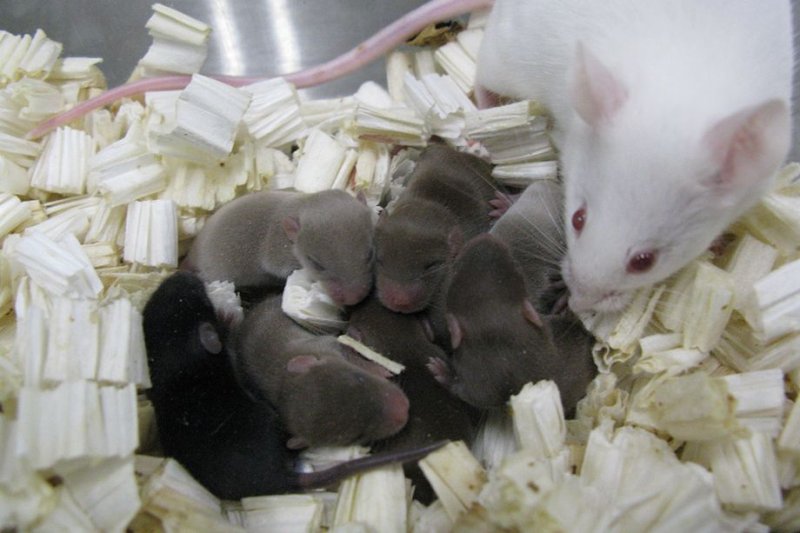A litter of mice were born on Earth from freeze-dried sperm stored for nine months on the International Space Station. Photo courtesy of PNAS Journal
May 22 (UPI) -- The first animals born from sperm stored for nine month on the International Space Station show it might be possible for animals and humans to reproduce beyond Earth, Japanese researchers said Monday.
The freeze-dried sperm produced a healthy litter of baby mice on Earth, according to a study published in the PNAS Journal. The study was not released to the public on Monday.
Researchers studied the effects of radiation on reproductive organs in orbit around Earth and tested for DNA damage. The ISS is exposed to 10 to 100 times more radiation than on Earth.
The sperm, stored on ISS for 288 days between 2013 and 2014, showed more DNA damage when compared to sperm that remained on Earth during that time. But the sperm's ability to fertilize eggs on Earth wasn't hindered.
Researchers reported only minor differences between the "space mice" and "ground control mice" with similar fertilization and birth rates.
"We got many healthy offspring from space sperm," Teruhiko Wakayama, a biologist at the University of Yamanashi in Japan and lead author of the study, said in an email to The Verge. "Those pups could not have any genetic damage."
The longer samples are preserved in space the more DNA can become damage, the researchers said.
One beguiling possibility: sperm banks on the Moon, the researchers said, "because of their very low temperatures, protection from space radiation by thick bedrock layers, and complete isolation from any disasters on Earth."
Researchers also said colonizing space remains a cosmic question requiring research far beyond the ISS, partly because its orbit is protected by the Van Allen radiation belt.
"No one got pregnant in space and had the baby," said Dorit Donoviel, associate professor at the Center for Space Medicine at Baylor University, who was not involved with the Japanese study.
"An ideal experiment would be to really have mice mate and deliver a litter of pups in space, and I don't even know if the mating is even feasible for mice in zero gravity."















